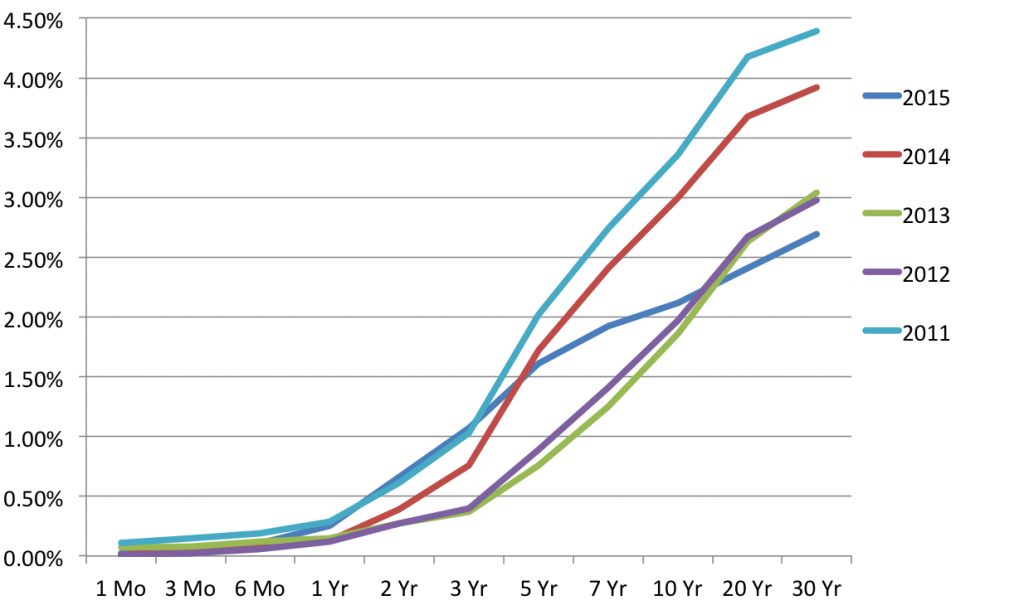Corporate bonds made easy
Post on: 17 Апрель, 2015 No Comment

Highlights
- Some investors steer clear because the new-issue market can be expensive.
- As with all corporate bonds there is no FDIC or government backing.
- It can be difficult in a distressed scenario to find liquidity.
Investment-grade corporate bonds can boost the yield of your fixed income portfolio and can add a reasonable amount of risk to a ladder when paired with certificates of deposit and Treasury securities. But a lot of do-it-yourself investors steer clear of corporate bonds because the new-issue market can be too expensive and the secondary market introduces price and yield variables that make some folks wonder if they’re getting a good deal.
Chicago-based securities and investment banking firm Incapital offers investment-grade corporate notes called InterNotes. The program is designed for individual retail investors and features newly issued notes from about two dozen corporations such as Bank of America, Dow, Goldman Sachs, HSBC Finance, John Deere and Prudential. GMAC issues a similar product under the brand name SmartNotes.
The notes have maturities that generally range from three to 20 years. They’re issued at par, $1,000, with a minimum purchase of $1,000. That’s considerably less than you’d pay if buying newly issued individual bonds through a broker. You can find bonds for $1,000 on the secondary market, but you’ll likely have to deal with premiums or discounts and a fluctuating yield.
Competitive yields
The yields can be quite competitive. For example, as of this writing, a Bank of America bond, maturing in 2015, is paying 5.25 percent, and an HSBC bond is offered at 4.7 percent, maturing in 2014. Currently, these yields compare very favorably to CDs and Treasury securities of similar duration — but they come with risk. As with all corporate bonds there is no FDIC or government backing.
InterNotes are offered through a network of brokerages and dealers with a new listing published once a week. Fees have already been deducted from the stated interest rate. Many of the notes have call protection, but some don’t and would likely be called by the issuer if interest rates dropped below the stated rate.
InterNotes takes a product that can be very complicated — buying bonds in the secondary market — and makes it simple, says Tom Ricketts, Incapital CEO. Basically, you’re getting a comparable yield to what you would have received if you bought that bond on the secondary market but you get it at par. All the fees are included so you don’t have to worry about calculating your yield to maturity. There’s no accrued interest, and no discount or premium. It’s a clean, simple way to access the market.
Matt Regan, senior managing director of retail brokerage at San Francisco-based WR Hambrecht, says his company has participated in the offerings for years and that customers appreciate the transparency.

There are good yields. The reality is you could do a lot of work, dig into the data and find out whether those yields are the best or whether they translate across credit ratings, but for someone doing it themselves who’s looking for a straightforward explanation of what a debt instrument is, I think these cut through a lot of it.
But, as mentioned, there is risk. Although Incapital only deals with investment grade issues, problems can arise.
CIT’s financial woes
Commercial lender CIT Group was a long-time participant in the InterNotes program. As it did for many companies, the current financial crisis caused problems for CIT. The company’s bonds are no longer rated as investment grade and CIT is no longer a participant in the InterNotes program.
But as CIT was defaulting on debt and its bonds were being downgraded, some investors had difficulty selling their InterNotes, according to Marilyn Cohen, CEO of Envision Capital Management in Los Angeles.
When things started going bad for CIT the InterNotes went down anywhere from $10 to $15 more than the larger global issues. There was no liquidity. Those that wanted to get out had to get out at any price they could get from their brokerage or online.
CIT InterNotes collapsed so much more than what we call the global issues, the big issues — $500 million, $600 million issues — because, to say InterNotes issues are small is an understatement.
Cohen, who manages bond portfolios for individuals, says do-it-yourselfers should stick with bond issues of $500 million or more to protect against potential liquidity problems.
Incapital’s Ricketts says that it can be difficult in a distressed scenario to find the kind of liquidity everyone wants and that can mean investors have to make tough decisions.
When a corporate credit gets distressed it trades differently than when it’s in its typical investment grade state. Individual investors are predominately sellers and not buyers at that point. They don’t feel like they want to go through the vagaries of the bankruptcy process and learn what their residual values are. On top of that it’s just a part of their portfolio. They’d rather get their 45 or 50 cents on the dollar and move on rather than play it for another five or 10 points. You can definitely sell, there is a market.
Whether you buy large issue or small issue bonds there will be problems to deal with if the company defaults. Be aware that liquidity along with pricing, interest rate, call risk and credit quality are among the factors you’ll need to weigh when buying bonds.
Create a news alert for investing














